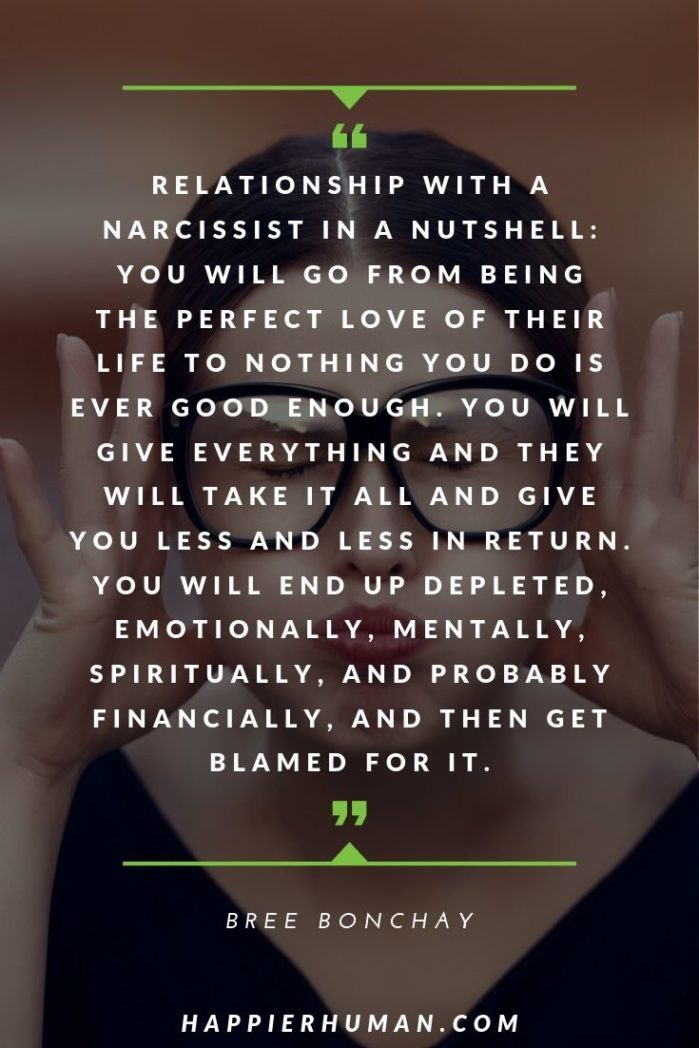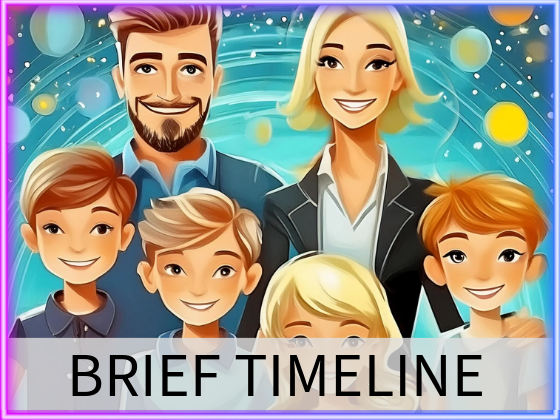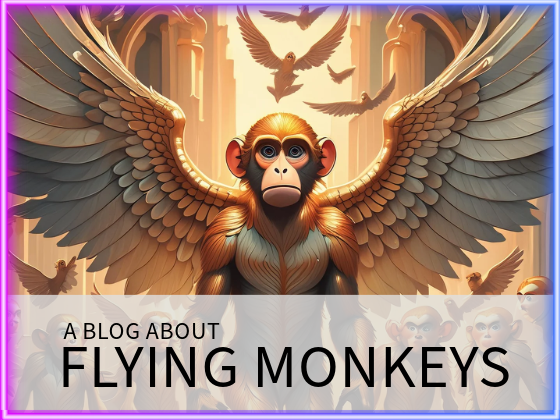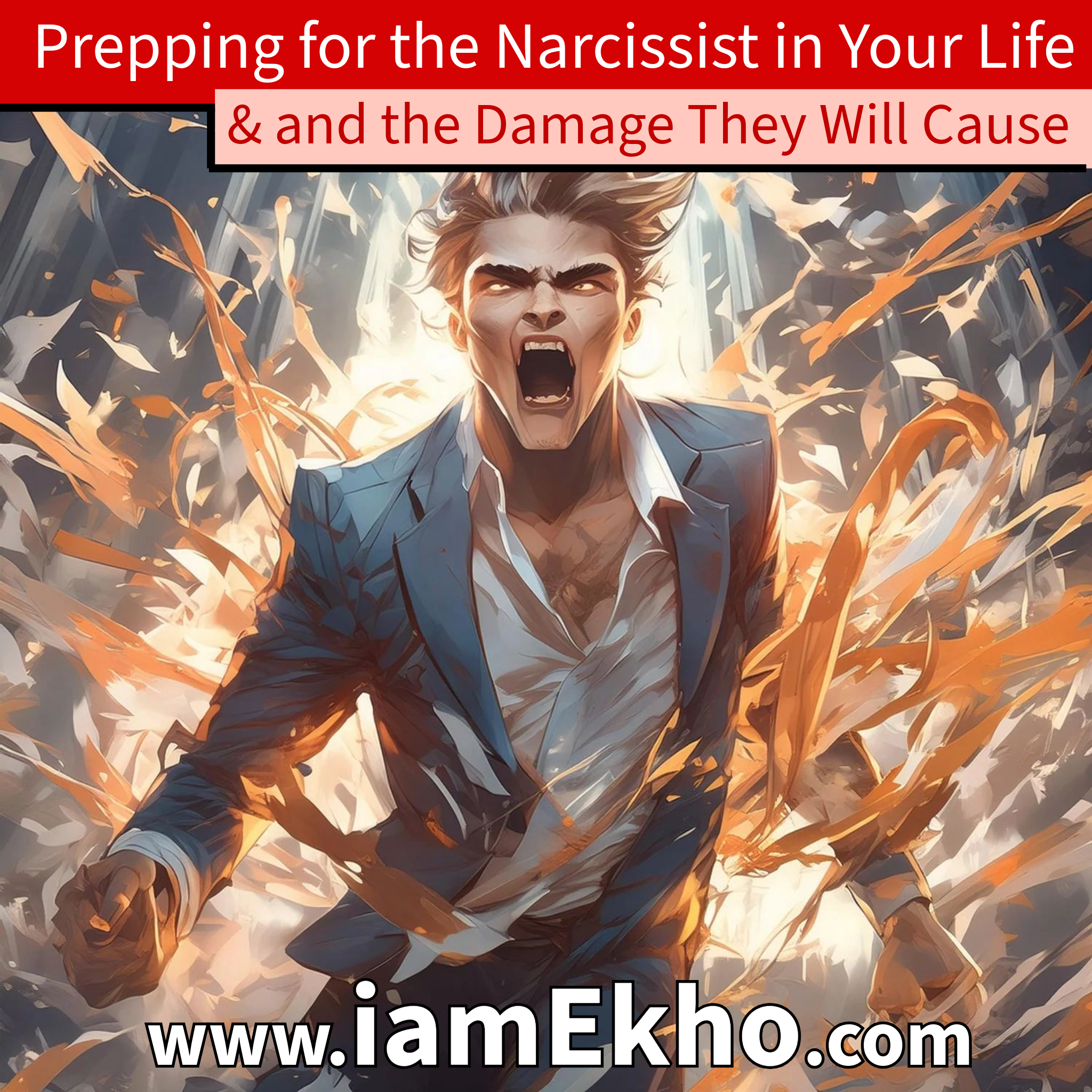I guess at some point I should talk about what a narcissist is, and now is as good of a time as any.
I will once again stress that I am not an expert on mental health, psychology, psychiatry, human behavior, or any other related field. Having lived through a relationship with a narcissist and having suffered through a smear campaign with a slew of seemingly never-ending flying monkey attacks, I feel equipped to tell my story but not to speak much on what defines a narcissist clinically. So everything I say should be viewed through that lens.
In my experience, narcissists are elusive creatures, hard to spot but, once you encounter one in your everyday life, almost impossible to forget. ~ Ekho
I don’t think there is any definition that adequately describes a narcissist, and I am sure that they can take on different forms and manifestations. In a nutshell, a narcissist is someone who has an excessive sense of self-importance, a deep need for admiration, and a lack of empathy for others.
Someone once told me “A narcissist sees you as an object – a thing – to use. A narcissist might really love his favorite mug, but when he is done drinking his morning coffee, he puts it away, never giving it another thought until he wants the next cup of coffee. If the mug breaks, he might be sad for a minute, but he will get another mug and soon forget the old-favorite-now-broken mug ever existed.” In this example, you are the mug.
From what I have read, in psychology, narcissism is often considered a personality disorder. Individuals with NPD often display grandiosity, a sense of entitlement, a tendency to exploit others for personal gain, and a constant need for attention and admiration. They may have difficulty maintaining healthy relationships due to their self-centeredness and inability to empathize with others' feelings and needs. Some narcissists – maybe most – pretend to empathize and listen to you, and they might be quite convincing on the surface. But it is never followed up by anything. They might ask you how you are dealing with your father’s recent death, but they are not tuned in to your response because they just don’t care. And their alleged care rarely goes beyond words. They might humor listening to you express some feelings for a few minutes, but they will not offer to pick up groceries for you, watch your child so you can rest, run an errand to alleviate some pressure, or do anything but the bare bones surface niceties. At most you might get a "thinking about you text"… if you are lucky -- and only if they want something in exchange.
Here is an excellent YouTube video on what Dr. Ramani calls pseudo-empathy. She explains that it is erroneous to claim that narcissists don’t have empathy. Instead, they have variable empathy where they can “turn it off and on to get what they need.”
I can personally relate to this video on so many levels.
My narcissist would listen with the most intense care and concern on his face to family and friends sharing their troubles. He really did look like he deeply cared. He was charming and an active listener, often mimicking the emotions on the face of the person pouring out their heart to him. When they said something sad, he would look forlorn and sometimes even manage to fake cry. If they said something frightening, he would look shocked and outraged. His audience was captivated by his seemingly flawless ability to empathize and sympathize with them in real time. This surface-level performance allowed him to win the hearts of many people, including me.

Truth be told, in front of people, he looked much more like he cared than I ever could – but the difference was that I really did care and he didn’t. I am sure he left people with a warm feeling. After we parted, I would express my concern for the person who had just shared the loss of a pet or marriage troubles, and he would brush it off by saying something along the lines of “They are pathetic” or “They are making a big deal out of nothing.”
If I wanted to do a follow-up – send a card, offer to help with the kids, run errands, bring them a meal – he told me I was wasting my time and his time. He often said that I was enabling them and making them weak and that they needed to learn a lesson (he was always trying to teach people 'lessons'). He looked and acted like he cared way better than I ever could, but his actions never reflected an iota of care or empathy. I don’t think I once saw him do anything (which would require actual time/ energy/ sacrifice) to care for another person other than to speak the right words or engage in a meticulously planned performance.
If he did do something, it was always in front of a crowd. For example, he would volunteer for a clean-up day at the church where his picture would be taken and blasted with praise all over social media. But if someone in the church needed help or a ride or an errand run, he was nowhere to be seen because the cost was too high and the reward too little.
I remember one time, Beth a poor and disabled member of our church came into a small inheritance and bought a home. She reached out to members of the community to mow her grass. I thought this would be an excellent opportunity for my narcissist’s eldest son – my 14-year-old stepson - to earn some money (we would pay him since Beth could not). After he agreed, my narcissist and I told Beth our plan, and she was very grateful.
Later that day, after the reality of what we had promised Beth sunk in, my narcissist quickly put the pings to the grass-mowing idea saying that our disabled friend “had no business buying a home if she was so poor and could not care for it herself, and, anyways, he was certain that she would have it ruined in a month with all of her cats.” He concluded that she needed to learn a lesson in responsibility. After some time trying to convince him that mowing her small plot of land would not be overwhelming, I gave up. He was not budging and, instead, getting increasingly angry.
I remember the shame and sadness I felt, as I sheepishly went back and told her that we just could not make it work this summer, making it appear as though it was a family decision. As was my custom, I never placed the blame on my narcissist. After all – we were a family – and we stuck together, right? I just made it sound like after we discussed things, we realized that our schedule would not allow for the lawn mowing. Little did I know that he would approach people in our church community a few hours later and lament how HE wanted to mow the grass, but I would not let him. This is just one example in a million of how he created his flying monkeys.
I think this snippet sums up my experience with a narcissist better than I can in my own words, so I will end my blog with this and a blessing -- "may your life be narcissist-free."








































